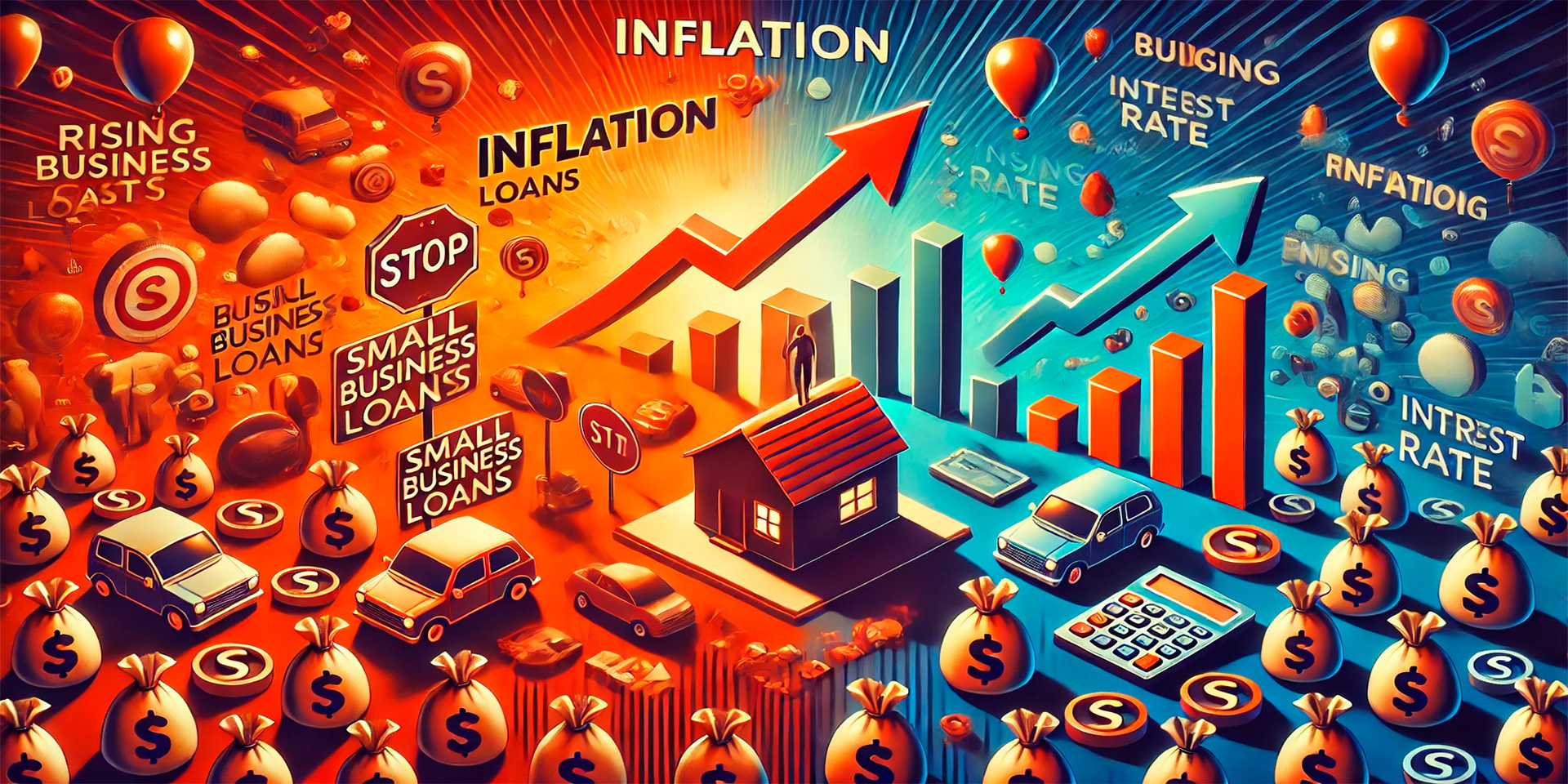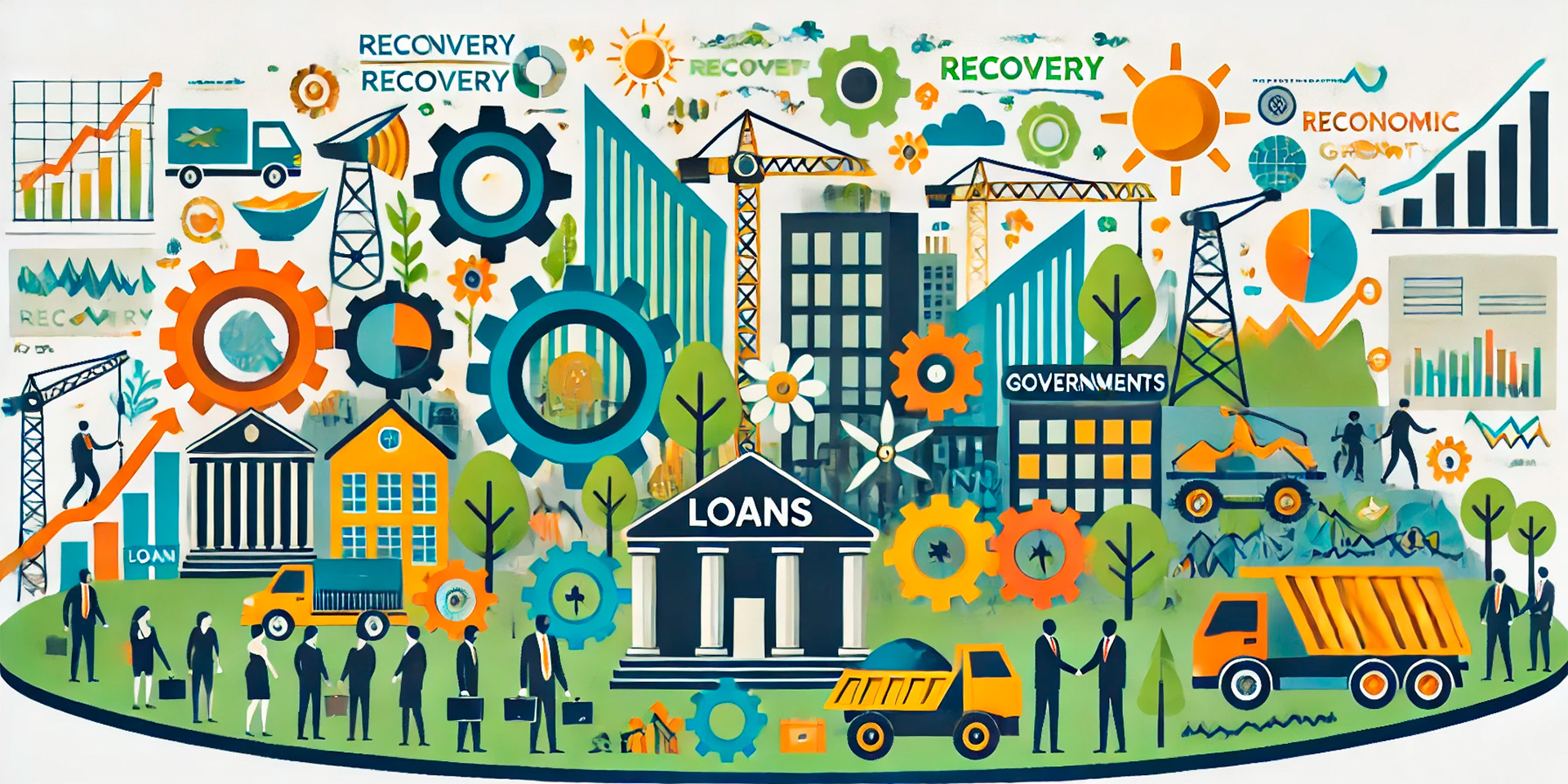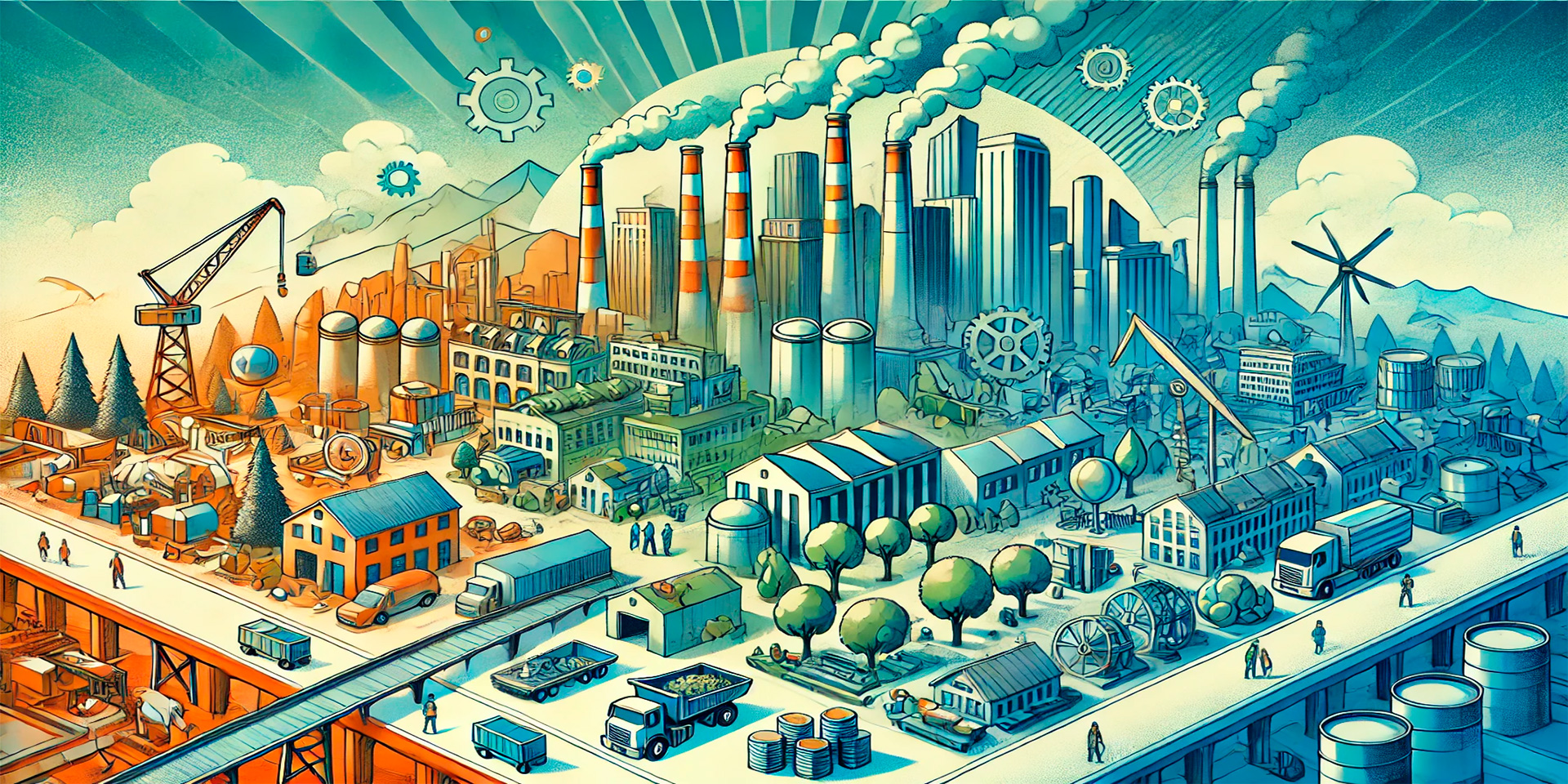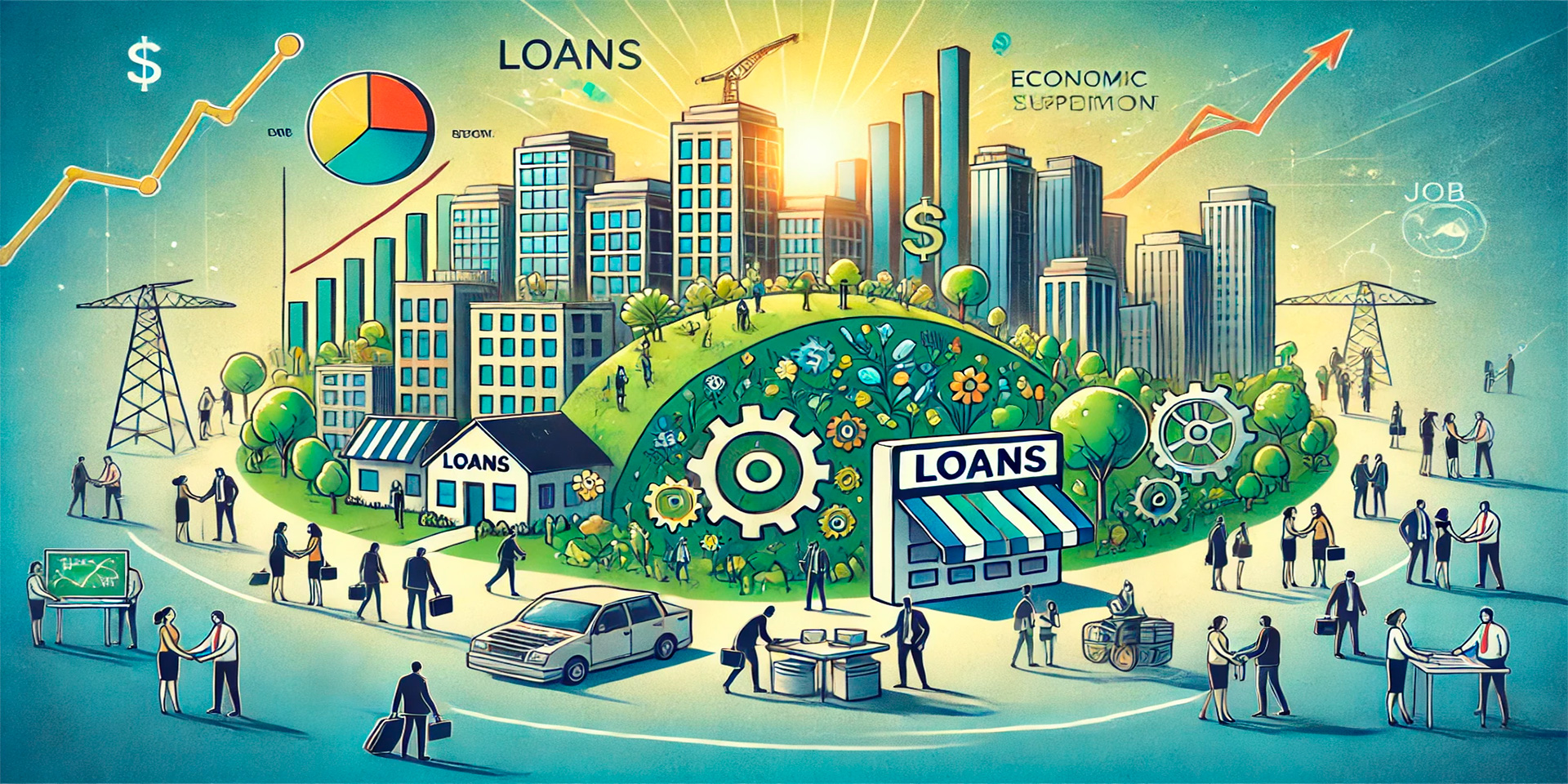
How Loans Drive Economic Growth: Empowering Businesses and Communities
Loans play a pivotal role in driving economic development, providing the financial resources needed for businesses to grow, innovate, and create jobs. By offering access to capital, loans help entrepreneurs launch new ventures, support businesses in expanding their operations, and enable governments to invest in infrastructure and community projects. Across industries and sectors, loans are a critical engine for economic growth, fostering stronger communities and more resilient economies.
Whether it’s a small business seeking startup funding or a large corporation investing in new technology, loans provide the essential capital needed to turn ideas into reality. The ripple effects of these investments extend beyond individual companies, benefiting workers, consumers, and entire communities.
Empowering Small Businesses
One of the most significant ways loans contribute to economic development is by empowering small businesses. Small and medium-sized enterprises (SMEs) are the backbone of many economies, driving innovation, job creation, and local economic activity. However, many small businesses struggle to access the capital they need to grow, especially in their early stages.
Loans bridge this gap by providing SMEs with the financial resources to hire employees, purchase equipment, and expand their product offerings. With access to affordable financing, small businesses can take calculated risks, scale their operations, and compete in broader markets. This not only strengthens the businesses themselves but also contributes to local economies by generating employment opportunities and stimulating demand for goods and services.
For instance, a small restaurant may use a loan to open additional locations, hire more staff, or upgrade its kitchen equipment. As the business grows, it hires local workers, sources ingredients from nearby suppliers, and attracts more customers to the area, creating a positive cycle of economic growth.
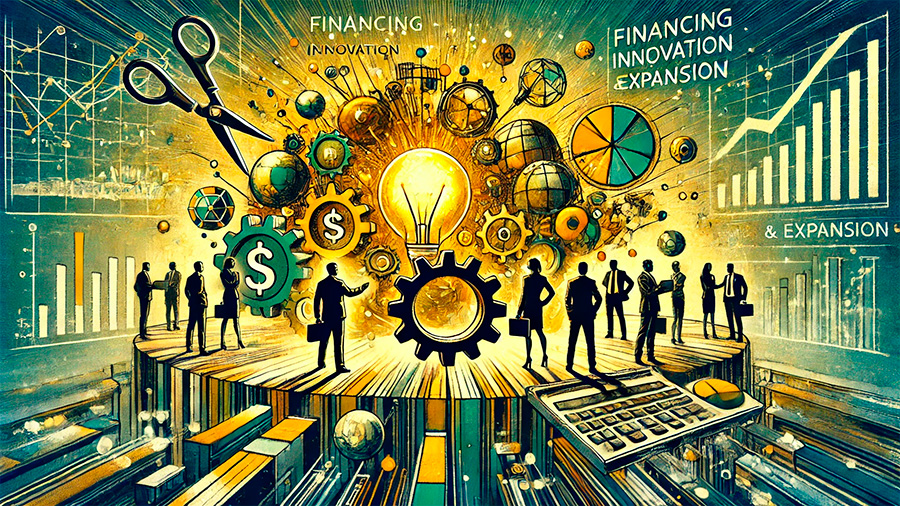
Financing Innovation and Expansion
Loans also play a crucial role in financing innovation, particularly for larger businesses and corporations. In industries where staying ahead of the competition requires continuous investment in research and development, loans provide the capital needed to explore new ideas, develop new products, and bring innovations to market.
For example, a technology company may secure a loan to fund the development of cutting-edge software or hardware, which in turn creates new jobs, attracts investment, and drives further economic growth. Similarly, loans enable companies in manufacturing, healthcare, and other industries to invest in advanced technologies that improve efficiency, reduce costs, and enhance productivity.
By financing these innovations, loans help businesses remain competitive on a global scale, leading to greater economic development in the regions where they operate. As companies grow and innovate, they contribute to the overall prosperity of their communities, creating a more dynamic and resilient economy.
Supporting Infrastructure Development
Infrastructure is the foundation of economic development, and loans play a key role in financing large-scale infrastructure projects. From transportation networks to energy systems and communication technologies, infrastructure investments enable businesses to operate more efficiently, connect with markets, and reach customers more effectively.
Governments and municipalities often rely on loans to fund infrastructure projects, such as building roads, bridges, and public transportation systems. These projects not only create immediate jobs in construction but also support long-term economic growth by improving access to markets, reducing transportation costs, and attracting investment to underserved areas.
For example, a rural community might secure a loan to build a new highway or expand broadband internet access. These improvements make it easier for local businesses to ship goods, access information, and connect with customers, ultimately leading to increased economic activity and higher living standards for residents.
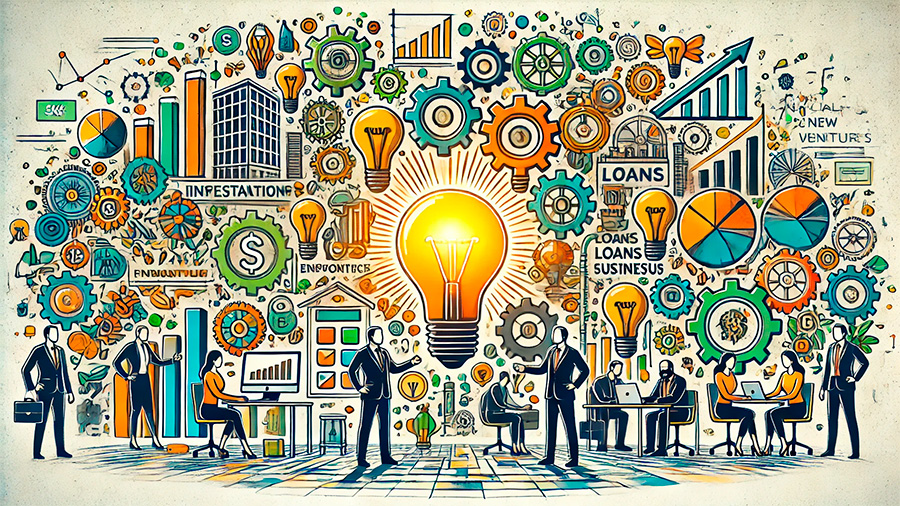
Encouraging Entrepreneurship and New Ventures
Entrepreneurship is a critical driver of economic development, and loans provide the capital necessary for entrepreneurs to launch new ventures. Many aspiring business owners lack the personal savings or external funding to start their companies, but loans offer a viable solution by providing the upfront investment needed to get off the ground.
Through small business loans, entrepreneurs can finance everything from product development and inventory to marketing and hiring. This access to capital lowers the barriers to entry for new businesses, fostering a more diverse and competitive market. As these new ventures succeed, they create jobs, generate income, and contribute to the broader economy.
Microloans, in particular, have been instrumental in encouraging entrepreneurship in developing countries, where access to traditional financial services is often limited. By providing small loans to individuals and businesses in underserved communities, microfinance institutions help stimulate local economies and support sustainable development.
Building Resilient Communities
Loans not only benefit businesses but also play a vital role in building resilient communities. Through personal loans, home improvement loans, and student loans, individuals gain access to financial resources that improve their quality of life and contribute to long-term economic stability.
Home improvement loans, for instance, allow homeowners to invest in their properties, increasing the value of real estate and contributing to community development. These loans support local contractors, suppliers, and other businesses, creating a ripple effect that benefits the broader economy.
Similarly, student loans enable individuals to pursue higher education, which is a key driver of economic mobility and growth. With the skills and knowledge gained from education, individuals can access higher-paying jobs, contribute to innovation, and support the economy through increased productivity and consumer spending.
Fostering Global Economic Integration
Loans also play a significant role in fostering global economic integration by facilitating cross-border investments and international trade. Global development banks, such as the World Bank and International Monetary Fund (IMF), provide loans to countries and businesses to fund development projects, improve infrastructure, and promote economic stability.
These international loans help developing economies access the capital needed to build the infrastructure and institutions necessary for sustained growth. By investing in these projects, countries can improve their competitiveness in global markets, attract foreign investment, and expand their trade networks.
For businesses, access to international loans enables them to expand into new markets, establish global supply chains, and increase exports. This interconnectedness strengthens the global economy, promoting shared prosperity and economic development across regions.
Conclusion
Loans are a powerful tool for fostering economic development, supporting businesses and communities in achieving growth and stability. From empowering small businesses and entrepreneurs to financing innovation, infrastructure, and global economic integration, loans drive economic progress by providing the capital needed for sustainable development. As businesses grow, innovate, and create jobs, they contribute to stronger communities and a more resilient global economy.

